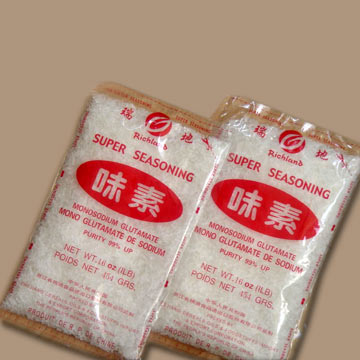MSG reconsidered. Should you be using msg in your Asian food?

Why Asian food tastes better in Asia…MSG reconsidered
MSG is ubiquitous in Asia, and is used by EVERYBODY, in just about every dish; just as you would add salt to just about everything. MSG used to be considered a flavor enhancer, but more recent scientific research has actually determined that that our tongues actually have specific receptors for this molecule, and the taste has been named unami,. Not only MSG has this unami, it is also found in foods as diverse as soy sauce, parmesan cheese, truffles, fish sauce, shitake mushrooms, etc. and the addition of unami as a flavor is an understood culinary concept in China, and much of the rest of Asia.
Msg, or unami, adds a lingering depth of flavor, and a judicious dash of MSG can transport the merely good to the sublime.
MSG has had a bad reputation ever since a 1960's study in the New England Journal of Medicine published a report FROM ONE DOCTOR, DESCRIBING ONLY HIS OWN SYMPTOMS after eating Chinese food; not exactly a rigorous scientific study! This Chinese food syndrome has since been proven to be a myth and msg has been clinically studied, and found to be easily tolerated by the overwhelming majority of people. Chinese restaurant syndrome, it seems, is largely a psychosomatic one.
Msg is widely available for purchase in most of the world, and you'd be surprised at the difference it can make to your Asian cooking. Try adding in a scant pinch to your next stir fry, and see the difference it will make. Adding msg is not cheating, and is in fact a more culturally correct and authentic way to replicate the flavors and dishes of Asia.
Now too much msg is a bad thing, Just as too much salt can make a dish unpalatable. You can learn to taste msg, and if you can actually discern it in the flavors of a dish, you've added too much. Some processed and packaged foods will also use too much msg, just as they use too much salt…another reason to cook for yourself!
Msg is an authentic ingredient, is benign, and does not induce any sort of physical reaction in the overwhelming majority of people. Try a little msg
Say no to no msg!






